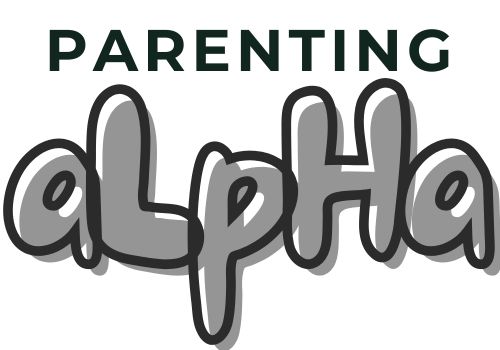The Beta Generation, born between 2025 and 2039, represents individuals poised to inherit and shape the future of society in the digital age. In the context of generational cohorts, it refers to the generation succeeding Generation Alpha (2010 – 2024).
Beta individuals will leverage technology to redefine education, social interactions, and traditional notions of work, to help create new opportunities in tackling global challenges.
Their clear understanding of technology and global connectivity will propel them to lead the way towards a more interconnected society, or otherwise, a ‘Betaverse’ world.
Beta Generation individuals will primarily inhabit, shape, and define the term Betaverse- a hypothetical or emerging digital universe or ecosystem. Similar in concept to the Metaverse, the Betaverse is a virtual space where people interact, communicate, and engage in various activities using digital platforms.
In this virtual world, users may
- create personalized avatars,
- explore virtual environments,
- socialize with others,
- play games,
- attend events,
- attend classes,
- conduct business, and much more.
It represents a dynamic and immersive digital environment where real-world boundaries blur, and possibilities are limitless.
Why Beta?
Yes, why the name Beta? The truth is, there wasn’t a competition to name Generation Beta. The name actually follows the naming scheme established for previous generations, and being the next letter after Alpha as per the Greek alphabet.
The name “beta” likely comes from the Phoenician letter “beth” (meaning “house”). Beta (β) itself doesn’t have a specific meaning like “better” in English. The letters of the Greek alphabet don’t represent words, they represent sounds.
Here is why “Beta” likely emerged as the preferred term:
Sequential Order: Generations are typically named alphabetically (Baby Boomer, Gen X, Millennial, Alpha). Beta simply follows this sequential order.
Neutrality: “Beta” is a neutral term, free from emotional connotations or associations with specific historical events. This allows future researchers and sociologists to study the generation based on its own characteristics rather than predetermined ideas.
Future Potential: “Beta” can also imply potential and room for development, which aligns with the idea that this generation is still young and their defining characteristics are yet to be fully formed.
It is important to note that generation labels are not always definitive. Generations can overlap, and experts might debate or adjust the specific birth years for Beta as more data becomes available.
However, “Beta” serves as a placeholder for now, reflecting its position in the generational sequence and its lack of predetermined characteristics.
The Parents of Beta Generation

The parents of Generation Beta will most likely be members of Generation Alpha, Z, and Millennials.
Here’s a breakdown:
- Generation Beta: Born between 2025 and 2039 (estimated).
- Generation Alpha: Born between 2010 and 2024 (estimated). The oldest Alpha will be 15 in 2025. As they reach adulthood, some members of Generation Alpha will likely become parents to the later part of Generation Beta (born closer to 2039). It will be interesting to see how their own upbringing, heavily influenced by technology from a young age, shapes their parenting styles.
- Generation Z: Born between 1995 and 2009. The oldest Z will be 30 and youngest 16 in 2025. Gen Z demonstrates notable social awareness. They might raise their children (Gen Beta) with a strong emphasis on social justice and environmental responsibility.
- Millennials: Born roughly between 1981 and 1996. The youngest Millenial will be 31 in 2025. This generation is already having children, and many will likely be parents to members of the earlier part of Generation Beta (born closer to 2025). They’ll be raising their children in a world heavily influenced by technology themselves, having grown up with significant technological advancements.
What will Define the Beta Cohort?

Here is a glimpse into what might define the Beta cohort:
Tech-Shaped Lives: Unlike Alpha who grew up with technology, Beta will be completely immersed in it. Imagine AI integration in daily life, ubiquitous connectivity, and constant advancements in areas like VR. This will likely make them super comfortable in the digital world.
AI-First Mentality: Artificial intelligence is expected to be even more prominent in their formative years. This could lead to them being comfortable with AI companions, using automated responses in communication, and even interacting with AI-generated versions of themselves online.
Focus on Lifelong Learning & Upskilling: With rapid technological change, lifelong learning might become crucial for Betas to stay relevant in the job market. They might be more inclined towards continuous upskilling and online education to keep pace.
Evolving Social Interactions: The constant online presence might influence how Betas socialize. Imagine interactions with AI-powered chatbots or simulations on social media. It’ll be interesting to see how this shapes their social development.
Uncertainty and the Search for Truth: With the rise of deepfakes and manipulated media, Betas might face challenges in determining real information. They could develop strong critical thinking skills to navigate a world where truth can be elusive.
Pushing Tech Boundaries: As digital natives, Betas might be instrumental in further developing AI, VR, and other emerging technologies. They could be the ones shaping the future technological landscape.
These are just predictions, and the exact characteristics will depend on how technology and society evolve. However, it’s clear that a world deeply integrated with technology and constant change will shape Generation Beta.
Comparing Beta and Older Cohorts

It is difficult to say for sure how the Beta cohort will be different from previous generations. However, based on technological advancements and societal trends, here are some potential areas of difference:
1. Technology Integration
Alpha vs Beta: Alpha grew up with technology, but Beta will be entirely immersed in it. Imagine constant advancements in AI, ubiquitous internet access, and constant VR development. Betas will likely feel incredibly comfortable in the digital world compared to all previous generations.
Previous Generations: Prior generations like Millennials and Gen X may have adopted technology over time, but Betas will never know a world without it. This could lead to significant differences in how they communicate, learn, and interact with the world.
2. Focus on Lifelong Learning
Beta and the Job Market: With the rapid pace of technological change, staying relevant might require continuous up-skilling. Betas might be more inclined towards online education and lifelong learning to keep pace with the changing job market.
Previous Generations: Previous generations may have valued traditional education paths, but Betas might prioritize continuous learning throughout their lives to adapt to the changing technological landscape.
3. Evolving Social Dynamics
The Online World and Beta: The constant online presence might influence how Betas socialize. Imagine interacting with AI-powered chatbots or simulations on social media. It will be interesting to see how this shapes their social development compared to previous generations.
Previous Generations: Social interaction for previous generations may have relied more on face-to-face communication. Betas might navigate a more blended social landscape with a stronger online presence.
4. Critical Thinking Skills
Beta and the Information Age: The rise of “deepfakes” and manipulated media might make it harder for Betas to discern truth – or maybe NOT! They could develop strong critical thinking skills to navigate a world where information isn’t always reliable.
Previous Generations: Previous generations might have relied on more traditional sources of information. Betas might need to develop stronger information literacy skills to navigate the complexities of the digital age.
5. Tech Innovation
Beta as Digital Natives: As digital natives, Betas might be instrumental in pushing the boundaries of AI, VR, and other emerging technologies. They hold the potential to shape the future technological landscape in ways we can’t even imagine yet.
Previous Generations: While previous generations have also contributed to technological advancements, Betas might be uniquely positioned to drive innovation due to their deep immersion in technology from a young age.
These are just some potential differences, and the actual characteristics of Generation Beta will depend on the trajectory of technology and society. However, it’s clear that constant change and deep integration with technology will significantly shape Generation Beta.
The Last Word
As the Betaverse emerges and the Beta generation prepares to fully inhabit it, open and comprehensive discussions are crucial. We must prioritize ethical development that ensures data privacy, mental health safeguards, and accessibility for all.
By focusing on responsible design that empowers users with digital citizenship skills, critical thinking abilities, and the ability to translate virtual experiences into real-world contributions, we can ensure that Betas become individuals for positive change.





Leave a Reply